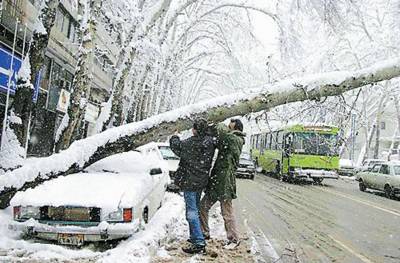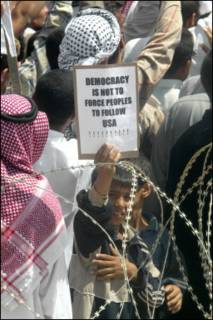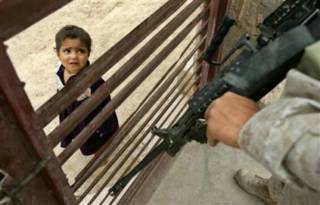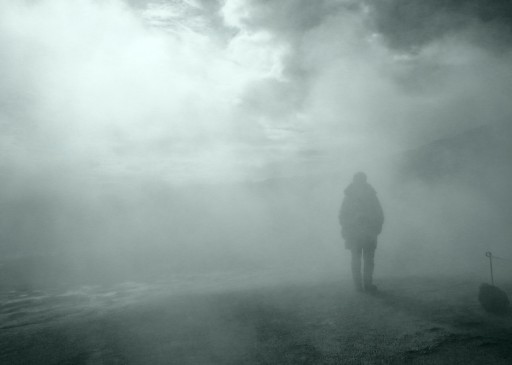Dass er mächtige Feinde hat, weiß IAEA-Chef Mohammed al-Baradei schon lange. Dennoch ist der Uno-Diplomat entsetzt darüber, dass die US-Regierung ihn belauschen ließ, um ihn mit belastendem Material aus dem Amt zu drängen. Die Lektion heißt: Wo Amerika mit Diplomatie nicht weiterkommt, sind Dirty Tricks nicht weit.
Was Mohammed al-Baradei, seit 1997 Chef der Internationalen Atomenergiebehörde (IAEA), da gestern in der "Washington Post" zu lesen bekam, überraschte ihn nicht. "Ich gehe davon aus, dass ich abgehört werde und verhalte mich entsprechend", hatte er schon im März dieses Jahres der BBC anvertraut. "Man fühlt sich nicht besonders gut dabei, weil es eine Verletzung der Privatsphäre ist."
Und doch ist der Ägypter entsetzt und empört, wie Vertraute berichten. Der Diplomat hat sich nicht vorstellen können, dass die US-Regierung illegale Lauschangriffe dazu nutzten wollte, ihn aus dem Amt zu drängen - wenn sich nur etwas Belastendes gefunden hätte.
Die Bush-Regierung will Baradei loswerden, das weiß der 62-Jährige seit langem. Der scheidende amerikanische Außenminister Colin Powell, mit dem er gut kann, hat es Baradei schon vor Monaten gesteckt. Dass die USA aber einen diplomatischen Eklat solcher Größenordnung riskieren würden, hatte Baradei nicht erwartet.
Erst war es nur Anlehnung, inzwischen ist der oberste Atomkontrolleur in Teilen der Bush-Regierung geradezu verhasst: Unvergessen blieb etwa, dass er im Weltsicherheitsrat die angeblich so eindeutigen Beweise für ein wieder aufgenommenes Atombombenprogramm des Irak Stück für Stück auseinander nahm. An einem Schwarzen Brett bei der IAEA hing damals eine Karikatur: Eine Ehepaar versprach sich die Treue - bis zum Auffinden der Massenvernichtungswaffen im Irak.
Baradei hörte nicht auf, sich mit dem mächtigsten Mitgliedsland seiner Organisation anzulegen: Die Pläne von US-Präsident George W. Bush, neue, kleine Atombomben entwickeln zu lassen, kritisierte er als Verstoß gegen den Geist des Atomwaffensperrvertrages. Und das Weiße Haus sieht in ihm den Urheber einer Geschichte, die Bush kurz vor dem Wahltag in schwere Bedrängnis brachte: Von der IAEA versiegelte Sprengstoffdepots im Irak waren geplündert worden, weil die US-Armee sich nicht um deren Schutz kümmerte. Baradei weist die Anschuldigungen zurück.
Dass der einstige Präsident der ägyptischen Anwaltsvereinigung so hartnäckig darauf besteht, dass auch die mächtigen USA sich an die Regeln halten, hat ihm in Europa und in der Dritten Welt viel Glaubwürdigkeit verschafft. Aus der einst oft allzu nachsichtigen IAEA, die sich von Schurkenstaaten leicht austricksen ließ, hat er eine hoch motivierte und erfolgreiche Detektivtruppe gemacht: Bodenproben, Wischtests, bohrende Fragen - der einst ein bisschen schlampige und allzu nachlässige Polizist ist ein echter Cop geworden.
Die Zeiten werden noch schwer, prophezeit Baradei. Die Atomkrisen um Nordkorea und Iran sind nicht ausgestanden. Große Sorge macht ihm, dass Terroristen Massenvernichtungswaffen in die Hände bekommen könnten. "Wenn für mich im November 2005 Schluss ist, kann ich endlich mein Golf-Handikap verbessern", hat er unlängst gesagt. Aber solche demonstrative Gelassenheit muss man ihm nicht abnehmen. Baradei, der 1984 als Beamter bei der IAEA begann, will weitermachen.
Er hat erkannt, wie groß in der Welt nach dem Debakel um die angeblichen Massenvernichtungswaffen im Irak das Interesse an einem Schiedsrichter, einem ehrlichen Makler ist. "Die Menschen wissen, dass unsere Arbeit den Unterschied zwischen Krieg und Frieden ausmachen kann", sagt er.
Mit ihrer Kritik an dem IAEA-Chef sind die USA ziemlich allein. Den meisten Staaten gilt Baradei als Glücksfall an der Spitze der Atomenergiebehörde. Auch die Bundesregierung hat dem IAEA-Chef schon Unterstützung für eine erneute Kandidatur zugesagt.
Alle Versuche amerikanischer Diplomaten, Unterstützung für Gegenkandidaten zu organisieren, sind bisher gescheitert. Weder die beiden von Washington genannten japanischen Diplomaten noch der australische Außenminister Alexander Downer würden bei einer Kampfabstimmung gegen Baradei siegen können. Die jetzt enthüllte Bespitzelung wird Baradei nur noch mehr Sympathien eintragen - seine Ablösung droht für die US-Regierung endgültig eine mission impossible zu werden.
Mehr Abstimmung und weniger Konfrontation hat Bush in seiner zweiten Amtszeit versprochen. Der Abhörskandal lässt eine andere Schlussfolgerung zu: Wo Amerika mit Diplomatie seine Ziele nicht durchsetzen kann, muss weiter mit Dirty Tricks gerechnet werden.
von Spiegel
Sunday, February 20, 2005
Saturday, February 19, 2005
Shirin Ebadi: Attacking Iran would bring disaster, not freedom
Condoleezza Rice has given assurances that a military attack by the United States on Iran "is simply not on the agenda at this point".
But notwithstanding Rice's disavowal, recent statements by the Bush administration, starting with President Bush's State of the Union address and Vice President Dick Cheney's comments about a possible Israeli military attack on Iran, are reminiscent of the rhetoric in the months leading up to the invasion of Iraq in 2003.
And Rice herself made clear that "the Iranian regime's human rights behaviour and its behaviour toward its own population is something to be loathed."
American policy toward the Middle East, and Iran in particular, is often couched in the language of promoting human rights. No one would deny the importance of that goal. But for human rights defenders in Iran, the possibility of a foreign military attack on their country represents an utter disaster for their cause.
The situation for human rights in Iran is far from ideal. Security forces harass, imprison and even torture human rights defenders and civil society activists. The authorities attack journalists and writers for expressing their opinions and regularly shut down newspapers. Political prisoners languish in jails. Superfluous judicial summonses are routinely used to intimidate critics, and arbitrary detentions are common.
But Iranian society has refused to be coerced into silence. The human rights discourse is alive and well at the grassroots level; civil society activists consider it to be the most potent framework for achieving sustainable democratic reforms and political pluralism. Indeed, readers might be surprised to know how vigorous Iran's human rights organisations are. Last autumn, when security forces unlawfully detained more than 20 young journalists and bloggers because of what they had written, independent Iranian organisations like the Centre for Defence of Human Rights, the Association of Journalists for Freedom of Press, and the Students Association for Human Rights campaigned for their release.
This outcry, in tandem with support from the international community and organisations such as Human Rights Watch, led to the release of detainees. In fact, so great was the criticism that some of Iran's most senior government officials came out in favour of releasing the detainees.
Independent organisations are essential for fostering the culture of human rights in Iran. But the threat of foreign military intervention will provide a powerful excuse for authoritarian elements to uproot these groups and put an end to their growth.
Human rights violators will use this opportunity to silence their critics by labelling them as the enemy's fifth column. In 1980, after Saddam Hussein invaded Iran and inflamed nationalist passions, Iranian authorities used such arguments to suppress dissidents.
American hypocrisy doesn't help, either. Given the long-standing willingness of the American government to overlook abuses of human rights, particularly women's rights, by close allies in the Middle East such as Saudi Arabia, it is hard not to see the Bush administration's focus on human rights violations in Iran as a cloak for its larger strategic interests.
Respect for human rights in any country must spring forth through the will of the people and as part of a genuine democratic process. Such respect can never be imposed by foreign military might and coercion - an approach that abounds in contradictions.
Not only would a foreign invasion of Iran vitiate popular support for human rights activism, but by destroying civilian lives, institutions and infrastructure, war would also usher in chaos and instability. Respect for human rights is likely to be among the first casualties.
Instead, the most effective way to promote human rights in Iran is to provide moral support and international recognition to independent human rights defenders, and to insist that Iran adhere to the international human rights laws and conventions that it has signed.
Getting the Iranian government to abide by these international standards is the human rights movement's highest goal; foreign military intervention in Iran is the surest way to harm us and keep that goal out of reach.
Shirin Ebadi, the 2003 winner of the Nobel Peace Prize, is the founder of the Centre for Defence of Human Rights in Tehran
from The Independent 19 February 2005
But notwithstanding Rice's disavowal, recent statements by the Bush administration, starting with President Bush's State of the Union address and Vice President Dick Cheney's comments about a possible Israeli military attack on Iran, are reminiscent of the rhetoric in the months leading up to the invasion of Iraq in 2003.
And Rice herself made clear that "the Iranian regime's human rights behaviour and its behaviour toward its own population is something to be loathed."
American policy toward the Middle East, and Iran in particular, is often couched in the language of promoting human rights. No one would deny the importance of that goal. But for human rights defenders in Iran, the possibility of a foreign military attack on their country represents an utter disaster for their cause.
The situation for human rights in Iran is far from ideal. Security forces harass, imprison and even torture human rights defenders and civil society activists. The authorities attack journalists and writers for expressing their opinions and regularly shut down newspapers. Political prisoners languish in jails. Superfluous judicial summonses are routinely used to intimidate critics, and arbitrary detentions are common.
But Iranian society has refused to be coerced into silence. The human rights discourse is alive and well at the grassroots level; civil society activists consider it to be the most potent framework for achieving sustainable democratic reforms and political pluralism. Indeed, readers might be surprised to know how vigorous Iran's human rights organisations are. Last autumn, when security forces unlawfully detained more than 20 young journalists and bloggers because of what they had written, independent Iranian organisations like the Centre for Defence of Human Rights, the Association of Journalists for Freedom of Press, and the Students Association for Human Rights campaigned for their release.
This outcry, in tandem with support from the international community and organisations such as Human Rights Watch, led to the release of detainees. In fact, so great was the criticism that some of Iran's most senior government officials came out in favour of releasing the detainees.
Independent organisations are essential for fostering the culture of human rights in Iran. But the threat of foreign military intervention will provide a powerful excuse for authoritarian elements to uproot these groups and put an end to their growth.
Human rights violators will use this opportunity to silence their critics by labelling them as the enemy's fifth column. In 1980, after Saddam Hussein invaded Iran and inflamed nationalist passions, Iranian authorities used such arguments to suppress dissidents.
American hypocrisy doesn't help, either. Given the long-standing willingness of the American government to overlook abuses of human rights, particularly women's rights, by close allies in the Middle East such as Saudi Arabia, it is hard not to see the Bush administration's focus on human rights violations in Iran as a cloak for its larger strategic interests.
Respect for human rights in any country must spring forth through the will of the people and as part of a genuine democratic process. Such respect can never be imposed by foreign military might and coercion - an approach that abounds in contradictions.
Not only would a foreign invasion of Iran vitiate popular support for human rights activism, but by destroying civilian lives, institutions and infrastructure, war would also usher in chaos and instability. Respect for human rights is likely to be among the first casualties.
Instead, the most effective way to promote human rights in Iran is to provide moral support and international recognition to independent human rights defenders, and to insist that Iran adhere to the international human rights laws and conventions that it has signed.
Getting the Iranian government to abide by these international standards is the human rights movement's highest goal; foreign military intervention in Iran is the surest way to harm us and keep that goal out of reach.
Shirin Ebadi, the 2003 winner of the Nobel Peace Prize, is the founder of the Centre for Defence of Human Rights in Tehran
from The Independent 19 February 2005
Tuesday, February 08, 2005
Sunday, February 06, 2005
Rice or Chuckey?
THE CHILDREN OF IRAQ
I found these heart rending photos in:
http://www.zonaeuropa.com/01467.htm
What for crimes in the name of democracy!
http://www.zonaeuropa.com/01467.htm
What for crimes in the name of democracy!
A KISS FROM SUN IN MADRID
We were for two days in Madrid, the weather was not so cold and mainly it was sunny, and by our walk through the city I felt the caress of sunshine on my cheeks.
However I prefer Barcelona to Madrid, but I liked it and it remembered me on Tehran the high buildings, the sky and the mad driving:)!And the Modern art Museum was also hilarious!
However I prefer Barcelona to Madrid, but I liked it and it remembered me on Tehran the high buildings, the sky and the mad driving:)!And the Modern art Museum was also hilarious!
Saturday, February 05, 2005
What the Iranian people say to Bush
On Wednesday, Addressing the Iranian people, Bush said: "As you stand for your own liberty, America stands with you."
And what we the Iranian people say to you (Bush)is:
We are not stupid as yourself we know you don't care for liberty and freedom
We know the smell of our oil and wealth makes you like a mad and rabid dog who wants to attack.
We have seen what kind of democracy you brought to Iraq and Afghanistan.We have seen all those Pictures of injured and killed innocent people and children from your clusters bombs.
We have seen it that now there is no security in Baghdad and the shadow of death covers the whole city.
We have seen how the foreign oil companies plunder the wealth of country and the people fight for their survive.
Maybe we did a mistake that we had our revolution and wanted Khomeini as our leader as the Americans did the mistake again and chose you as their President!
But it was our mistake and we paid enough for it, we do'nt need any interruption from outside, We the people of Iran stand for freedom but also we are against any transgression and we will defend our home against any offensive country!
And what we the Iranian people say to you (Bush)is:
We are not stupid as yourself we know you don't care for liberty and freedom
We know the smell of our oil and wealth makes you like a mad and rabid dog who wants to attack.
We have seen what kind of democracy you brought to Iraq and Afghanistan.We have seen all those Pictures of injured and killed innocent people and children from your clusters bombs.
We have seen it that now there is no security in Baghdad and the shadow of death covers the whole city.
We have seen how the foreign oil companies plunder the wealth of country and the people fight for their survive.
Maybe we did a mistake that we had our revolution and wanted Khomeini as our leader as the Americans did the mistake again and chose you as their President!
But it was our mistake and we paid enough for it, we do'nt need any interruption from outside, We the people of Iran stand for freedom but also we are against any transgression and we will defend our home against any offensive country!
Subscribe to:
Comments (Atom)













